[Updated Oct 2020] For further offices information or to search office space for rent in Hamburg just click. Or contact us for any other query.
A guide to serviced offices and office space to rent in Hamburg as well as general information that may be useful if you are thinking of renting office space in Hamburg.
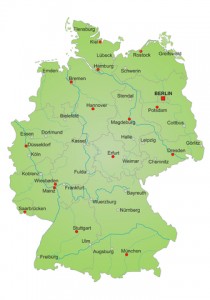 History
History
Hamburg, dubbed ‘the pearl of the Elbe’, is Germany’s second city and one of Europe’s wealthiest and most famous metropolises. The city began life as a fortress constructed by Emperor Charlemagne in AD 808. Its location on the southern tip of the Jutland Peninsula between Continental Europe and Scandinavia making it strategically ideal for fending off Slavic incursions at the time. Moreover, its proximity to the North Sea to the west and the Baltic Sea to the east was also advantageous. Indeed Hamburg’s location, essentially in the centre of northern Europe, and its proximity to the River Elbe, was to prove crucial in the development of the city’s character and identity through the centuries. In 1189 it was made an Imperial Free City by Frederick I ‘Barbarossa’ and later became a member of the Hanseatic League, a powerful alliance of cities and guilds which dominated trade along the northern coast of Europe until the 17th century. For these reasons the city is today formally known as the ‘Free and Hanseatic City of Hamburg’. In the 19th century, the city continued to cement its character as a centre of maritime trade, with the Elbe as its lifeline. At the turn of the century, the Hamburg-America Line was the world’s largest transatlantic shipping company. However, the city suffered greatly in the war, when in 1943 during Operation Gomorrah, sustained bombing by the British and American air forces resulted in a firestorm, which destroyed vast swathes of the city and killed over 40,000 civilians. However, Hamburg was extensively rebuilt and became prosperous once more, due in a large part to its busy port.
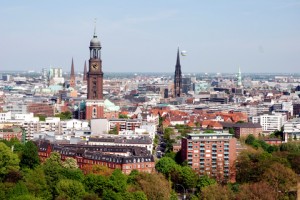
The Port of Hamburg
Hamburg’s port is essentially the heart and soul of the city and one of the major drivers of its economy. Known as the ‘Gateway to the World’, the Port of Hamburg is the second busiest in Europe after Rotterdam and handles approximately 134 million tons of goods every year. Though it is located a full 68 miles up the Elbe, it can handle ocean-going vessels and is therefore considered a seaport. The port is also the centre of a thriving shipbuilding and outfitting industry with major shipping giants like Blohm and Voss operating extensive shipyards. The port has an annual revenue of EUR 44.4 million and employs over 10,000 people. Over 12,000 vessels arrive in the port every year carrying everything from coffee and spices to pharmaceutical materials and paper. Additionally, cruise ships from the world over regularly visit the port, with 2010 seeing over 100 visits by cruise ships, including the Queen Mary 2.

Culture & Tourism
Many tourists come to Hamburg to see the Reeperbahn, perhaps the most famous red-light district in the world. Called ‘the sinful mile’ by the city’s inhabitants, the Reeperbahn is located in the city’s St Pauli district and is 600 meters of bars, discos, clubs and sex shops. It is the street where the Beatles famously rose to prominence and which caused John Lennon to say: “I may have been born in Liverpool – but I grew up in Hamburg”. Several of its cross streets such as Grosse Freihe (Great Freedom) and Herbertstrasse, which is lined with brothels and closed to women visitors, have gained equal notoriety.
However, Hamburg has many other attractions for those after more genteel pursuits. In the centre of the city is the Binnenalster lake, skirted by Jungfernstieg, Hamburg’s most exclusive shopping area. The Binnenalster is connected to the Aussenalster, a much larger lake, its banks lined with parks and cafes and connected to Hamburg’s extensive and picturesque system of canals. Hamburg is also famous for its Warehouse District (Speicherstadt) with its distinctive sprawling Neo-Gothic red-brick buildings intersected by winding canals.
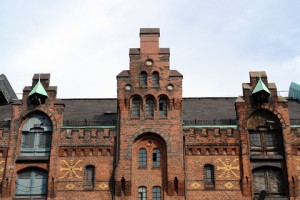
The city is also home to a plethora of museums, galleries and theatres. Among the most popular is the Kunsthalle, an eminent contemporary art gallery, the Museum of Art and Industry, The International Maritime Museum and the House of Photography.
Transport
Like most major German cities Hamburg is serviced by an excellent transportation system. It is connected to the rest of Germany by the autobahn and Hamburg airport is the oldest serving airport in the country. The city itself is serviced by the six lines of the S-Bahn and three U-Bahn (underground) lines. One can also catch the high-speed ICE train from the city’s main station, the Hauptbahnhof. Several ferries also ply their trade up and down the Elbe for those seeking a more slow and scenic way of travelling.
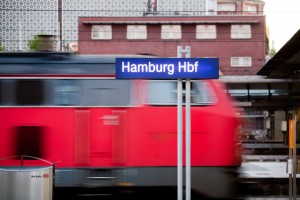
Hamburg office space for rent
Hamburg was badly affected by the drop off in world trade during the economic crisis, however, it has recovered quickly due to the strength of German exports. Currently, office space in Hamburg rents for approximately EUR 23 per square meter per month. A survey of around 480 experts undertaken by the Bundesinstitut für Bau,-Stadt und Raumforschung (BBSR) ahead of 2010’s MIPIM real estate trade fair showed that Hamburg is Germany’s most attractive location for commercial property.
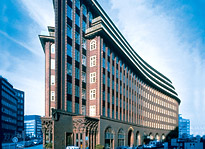
According to a report from CB Richard Ellis in 2010 Hamburg saw a take-up result of 95,800 square meters compared to the previous year, a result can be reported which is slightly better by 8 percent. Only 3 percent of this volume was attributed to owner-occupiers. This fell short of the long-term quarterly average (2002- 2010) of 108,600 square meters by some 12 percent. However, the report predicted that achieving this benchmark will be realistic in 2011.
We carry out a free office search and our advisory and acquisition services are also free, always. Our Hamburg office space brokers and agents are globally regulated by the Royal Institution of Chartered Surveyors (RICS) ensuring the highest standards of commercial property advice and service at all times.

The Office Providers are Regulated by the Royal Institution of Chartered Surveyors (RICS)